
 Flash News
Flash News
A stable in Fier is engulfed in flames, agricultural equipment and haystacks are burned
Taulant Xhaka is introduced as a player-coach of the Albanian team in Switzerland
Iranian Foreign Minister Admits Serious Damage to Nuclear Power Plants
He bought votes for his daughter, SPAK takes the father of the PSD candidate to trial
Russia prepares summer offensive with help from North Korean troops in Ukraine
Adorable or just plain weird? How Labubu dolls took over the world
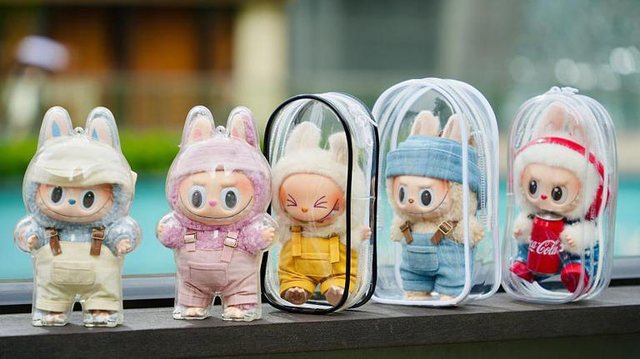
Whether you think they're cute, ugly or just plain weird, chances are you've heard of the furry dolls that have become a global sensation - Labubu.
Born a monster, the elf-like creature from Chinese toymaker Pop Mart is now a viral hit. And it has no shortage of celebrity supporters: Rihanna, Dua Lipa, Kim Kardashian and Blackpink's Lisa. Ordinary people are just as obsessed - from Shanghai to London, long lines to buy the doll have caused a stir, sometimes even turning into fights.
"You have such a sense of achievement when you're able to achieve it amidst such fierce competition," says avowed fan Fiona Zhang.
The world's fascination with Labubu has nearly tripled Pop Mart's profits last year - and, according to some, has even activated Chinese soft power, which has been damaged by the pandemic and a strained relationship with the West.
So, how did we get here?
What exactly is Labubu?
It's a question that still puzzles many - and even those who know the answer aren't entirely sure they can explain the madness.
Labubu is both a fictional character and a brand. The word itself means nothing. It is the name of a character in the toy series "The Monsters" created by Hong Kong-born artist Kasing Lung.
The vinyl faces are attached to plush bodies and come with a distinctive look - pointed ears, big eyes and a devilish grin that shows exactly nine teeth.
According to the retailer's official website, Labubu is "kind-hearted and always wants to help, but often accidentally achieves the opposite."
Labubu dolls have appeared in several episodes of "The Monsters", such as "Big into Energy", "Have a Seat", "Exciting Macaron" and "Fall in Wild".
The Labubu brand also has other characters from its universe who have inspired their popular dolls - such as the leader of the Zimomo tribe, her lover Tycoco and her friend Mokoko.
To the untrained eye, some of these dolls are difficult to tell apart. Connoisseurs would know, but Labubu's fame has certainly spread, with other specimens in the family flying off the shelves as well.
How did Labubu go global?
Before the world discovered Labubu, their fame was limited to China. They started to become a hit just as the country emerged from the pandemic in late 2022, according to Ashley Dudarenok, founder of China-focused research firm ChoZan.
"Pas pandemisë, shumë njerëz në Kinë ndjenë se donin të shpëtonin emocionalisht... dhe Labubu ishte një personazh shumë simpatik, por kaotik," thotë ajo. "Ai mishëronte atë anti-perfeksionizëm."
Interneti kinez, i cili është i madh dhe konkurrues, prodhon shumë trende virale që nuk globalizohen. Por ky i fundit u bë dhe popullariteti i tij u përhap shpejt në Azinë Juglindore fqinje.
Fiona, e cila jeton në Kanada, thotë se dëgjoi për herë të parë për Labubu nga shoqet filipinase në vitin 2023. Atëherë filloi t'i blinte - ajo thotë se i gjen të lezetshme, por popullariteti i tyre në rritje është një tërheqje e madhe: "Sa më popullore të bëhet, aq më shumë e dua.
"Burri im nuk e kupton pse unë, dikush në të 30-at, do të isha kaq e fiksuar pas diçkaje të tillë, si të kujdesesha se cilën ngjyrë të blija."
Ndihmon fakti që është gjithashtu i përballueshëm, shton ajo. Edhe pse kërkesa në rritje ka rritur çmimet në tregun e dorës së dytë, Fiona thotë se çmimi origjinal, i cili varionte nga 25 dollarë kanadezë (18 dollarë; 14 paund) në 70 dollarë kanadezë për shumicën e kukullave Labubu, ishte "i pranueshëm" për shumicën e njerëzve që ajo njeh.
Popullariteti i Lababu u rrit ndjeshëm në prill 2024, kur superylli i K-pop-it me origjinë nga Tajlanda, Lisa, filloi të postonte foto në Instagram me kukulla të ndryshme Labubu. Dhe më pas, personazhe të tjerë të famshëm globalë i shndërruan kukullat në një fenomen ndërkombëtar këtë vit.
Këngëtarja Rihanna u fotografua me një lodër Labubu të kapur në çantën e saj Louis Vuitton në shkurt. Influencuesja Kim Kardashian ndau koleksionin e saj prej 10 kukullash Labubu me ndjekësit e saj në Instagram në prill. Dhe në maj, ish-kapiteni i futbollit të Anglisë, Sir David Beckham, gjithashtu postoi në Instagram një foto të një Labubu, të cilën ia kishte dhënë vajza e tij.
Tani kukullat ndihen të kudondodhura, të dukshme rregullisht jo vetëm në internet, por edhe te miqtë, kolegët apo kalimtarët.
Çfarë fshihet pas obsesionit me Labubu-n?
Thënë thjesht, nuk e dimë. Ashtu si shumica e trendeve virale, tërheqja e Labubu-s është e vështirë të shpjegohet - rezultat i kohës, shijes dhe rastësisë që është interneti.
Pekini është sigurisht i kënaqur me rezultatin. Agjencia shtetërore e lajmeve Xinhua thotë se Labubu "tregon tërheqjen e kreativitetit, cilësisë dhe kulturës kineze në një gjuhë që bota mund ta kuptojë", ndërsa u jep të gjithëve mundësinë të shohin "Kinën e ftohtë".
Xinhua ka shembuj të tjerë që tregojnë se "pronësia intelektuale kulturore kineze po bëhet globale": loja video Black Myth: Wukong dhe filmi i animuar i suksesshëm Nezha.
Disa analistë duken të befasuar që kompanitë kineze - nga prodhuesit e automjeteve elektrike dhe zhvilluesit e inteligjencës artificiale deri te shitësit me pakicë - janë kaq të suksesshme pavarësisht shqetësimit perëndimor për ambiciet e Pekinit.
"BYD, DeepSeek, all these companies have one very interesting thing in common, including Labubu," Chris Pereira, founder and CEO of consulting firm iMpact, told BBC News.
"They're so good that no one cares that they're from China. You can't ignore them."
Meanwhile, Lababu continues to amass a following on social media with millions watching new owners unbox their prized purchase.
Latest news


Residents of Astir denounce the mixing of drinking water with sewage
2025-06-27 22:29:46
The counterfeiter of the nation
2025-06-27 21:58:15




Trump speaks again about Kosovo and Serbia: they are about to clash in a big war
2025-06-27 21:10:27
Tragedy in France/ Plane crashes, 3 people die
2025-06-27 20:54:17
BIRN: Here's who covered Rama's private jet trip to The Hague airport
2025-06-27 20:40:58
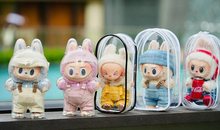
Adorable or just plain weird? How Labubu dolls took over the world
2025-06-27 20:07:29
Analysis/ How did the US use penetrating bombs on Iran's nuclear facilities?
2025-06-27 20:01:37
Tourist Vlora with waste incineration!
2025-06-27 19:41:46

Cristiano Ronaldo renews contract with Al Nassr until 2027
2025-06-27 19:17:59

Iranian Foreign Minister Admits Serious Damage to Nuclear Power Plants
2025-06-27 18:50:21

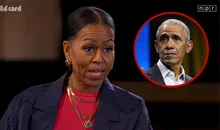
Michelle Obama reignites divorce rumors with Barack Obama
2025-06-27 18:10:15



Ukraine seeks Zelensky-Putin meeting after talks on humanitarian issues
2025-06-27 17:16:08

Car hits 16-year-old with motorcycle in Vau e Dejës
2025-06-27 16:36:06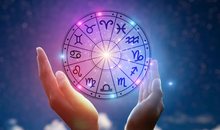
Italian tourist dies of cardiac arrest in Zvërnec
2025-06-27 16:26:10
Russia prepares summer offensive with help from North Korean troops in Ukraine
2025-06-27 16:15:18

Bad news for migrants, Germany temporarily suspends family reunifications
2025-06-27 15:46:05
Alizoti: Here's when the internal analysis in the DP will begin
2025-06-27 15:33:59

Four reasons why you can't sleep at night
2025-06-27 15:08:40
Two elderly men rape 38-year-old woman in Tirana
2025-06-27 14:59:36
Italian dies on Zvërnec beach
2025-06-27 14:49:14
Love at first sight and separation, unpredictable July for signs!
2025-06-27 14:31:49
Veliaj 'fights' corruption allegations with PR campaign on TikTok
2025-06-27 14:23:10
Gas cylinder explodes in Shëngjin, injuring a woman
2025-06-27 14:09:39
Environmental scandal in Vjosa, prosecution of oil decantation responsibility
2025-06-27 13:58:57
Gray hair is not caused by age, stress burns pigment cells from the inside
2025-06-27 13:50:02
33-year-old man found dead in Elbasan
2025-06-27 13:36:26


Criminal who helped inspire 'Stockholm syndrome' theory dies
2025-06-27 13:19:50


Guard found hanging in the building where he worked in Vlora
2025-06-27 12:51:44
Party political interest versus national interest
2025-06-27 12:43:06
Tabaku: The crisis in the pockets of Albanians is a consequence of misgovernment
2025-06-27 12:30:38


CEC distributes mandates for MPs in 4 districts
2025-06-27 12:02:23



Haxhiu: If I don't get 61 votes in a secret ballot, I will withdraw
2025-06-27 11:24:32
Access to the e-mails of 3 SPAK prosecutors, Zamblak Gjonaj remains in prison
2025-06-27 11:06:45

Flamur Noka appears in SPAK
2025-06-27 10:40:04




Accused of being part of a criminal group, 23-year-old arrested in Vau e Dejës
2025-06-27 09:41:31
What does Kosovo risk from the lack of new institutions?
2025-06-27 09:32:57
At risk of starvation, Israel closes aid route to Palestinians in Gaza
2025-06-27 09:21:58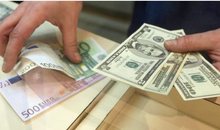

Consecutive earthquake tremors in Tirana
2025-06-27 09:02:51
Does baking soda help with diabetes problems?
2025-06-27 08:53:29
TNT explosion in a shop in Fushe Kruja
2025-06-27 08:46:49

Horoscope, what do the stars have in store for you today?
2025-06-27 08:20:01
Weather forecast, how temperatures will change during the day
2025-06-27 08:04:57
Morning Post/ In 2 lines: What mattered yesterday in Albania
2025-06-27 07:52:35

Race for the head of BKH/ Bushati: Only those who bow down make a career
2025-06-26 22:41:37
Lapaj: We can merge into a party with 'Nisma Thurje'
2025-06-26 22:25:53
Vote recount, Lubonja: Electoral manipulation took place before May 11
2025-06-26 22:12:23
Health Center inside the sports field, the wonder of the next project in Lushnje
2025-06-26 22:00:10


"The Task Force acted selectively"/ Bushati: SPAK was a government tool!
2025-06-26 21:33:19



Accident in Lezha, 69-year-old loses control and hits 4 parked vehicles
2025-06-26 20:51:34


KPA upholds dismissal of judge Avni Sejdi
2025-06-26 20:15:54



Accident in Lezha, car ends up in the parking lot of a playground
2025-06-26 19:35:03
Special court for the war in Ukraine, Zelensky signs the agreement in Strasbourg
2025-06-26 19:17:43



Report/ Albanian healthcare between limited transparency and under-financing
2025-06-26 18:34:34
